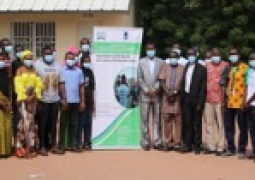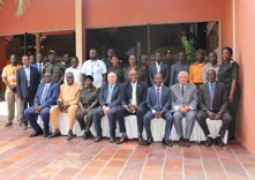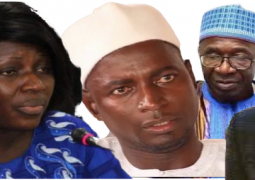In his International Democracy Day (IDD) press statement, he added: "Citizens must responsibly exercise their freedoms and right to participate in the country's governance process and play an active role in shaping the country's development."
He said NCCE remains steadfast in its belief that an informed citizenry is crucial to a healthy and resilient democracy.
"Driven by our strong conviction, every citizen has a role to play in promoting Gambia’s democracy and development," he said.
He reaffirmed NCCE’s commitment to deepen efforts to advance the vital cause of democracy, human rights, and good governance.
"On this day, NCCE reminds Gambians that democracy is a fragile social, cultural, and civic building that, like any other construction, needs upkeep and attention. While new opportunities for political participation have emerged over the years, polarisation along ethnic, tribal and religious divisions is rising."
"We recognise that efforts such as taking part in an election, exposing corruption, or peacefully rallying around a common cause are critical to strengthen, nurture and renew our nascent democracy.
"It should always be based on dictates of the laws of the land, respect for divergent views, tolerance and peaceful coexistence," he said.
The International Day of Democracy is observed on 15 September around the world. United Nations member countries commemorate the International Day of Democracy, which was established in 2007 as a result of a resolution adopted by the UN General Assembly at the time.
The day encourages governments to evaluate their nation's democracy and consider ways to strengthen it for inclusivity.
Section 1 (2) of the 1997 Constitution of the Republic of The Gambia states: “The Sovereignty of The Gambia resides in the people of The Gambia from whom all organs of government derive their authority and in whose name and for whose welfare and prosperity the powers of government are to be exercised in accordance with this Constitution.”
Democracy empowers citizens to make decisions that affect their lives, especially to choose their leaders and hold them accountable.
Therefore, a lively civic space where people – regardless of ethnic background, gender, language or religion - may stand up for their rights and hold the government accountable with equal rights and without prejudice is essential to any healthy democracy.
Read Other Articles In Headlines

Journalists are critical in climate change mitigation, says Beakanyang chair
Jul 26, 2022, 11:33 AM



